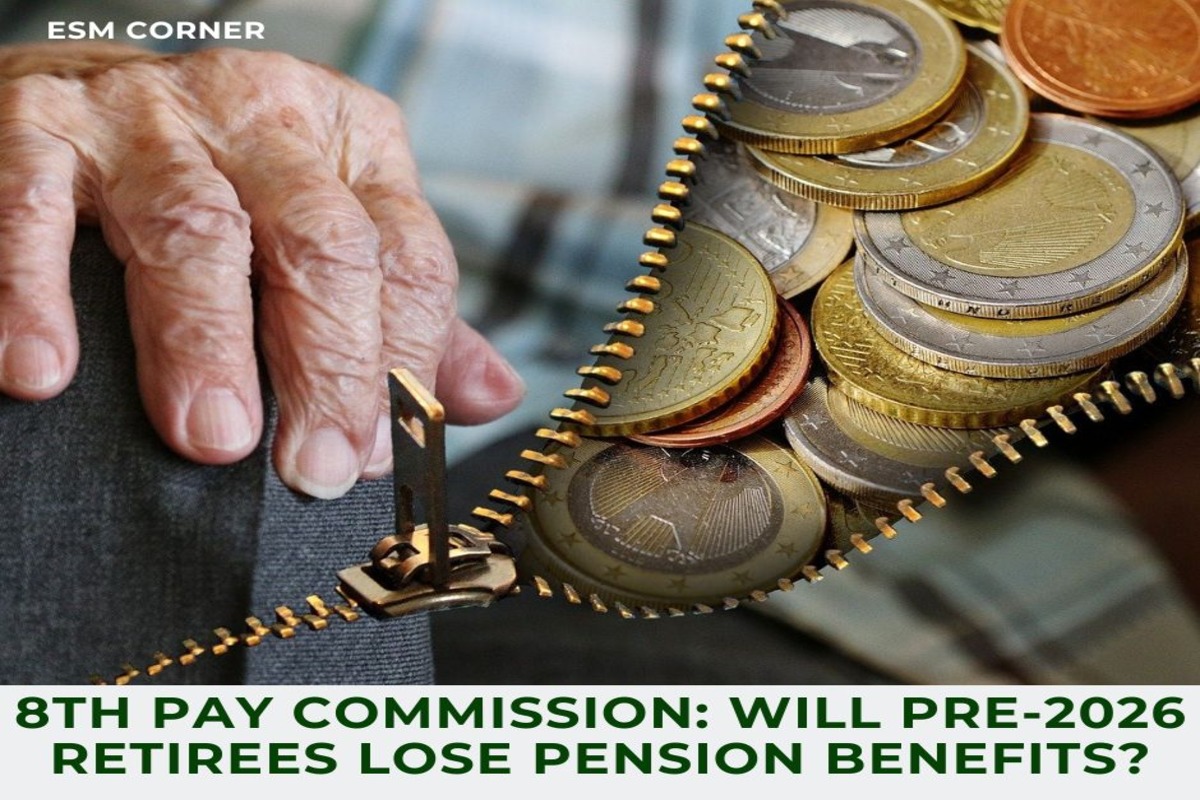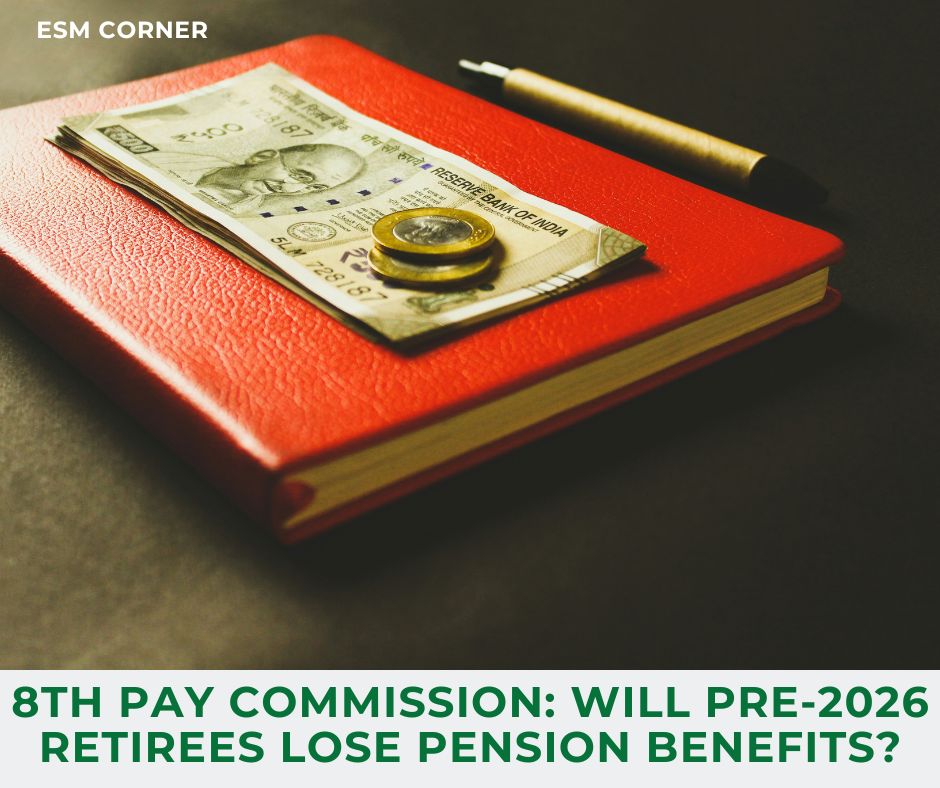
The announcement of the 8th Pay Commission has sparked intense debate among central government employees and pensioners, with one pressing question taking center stage: Will those who retired before January 1, 2026, be denied the benefits of the new pay commission? Recent amendments to the Central Civil Services (CCS) pension rules, introduced through the Finance Bill, 2025, have fueled concerns, with opposition leaders and trade unions alleging a hidden agenda to create disparities among pensioners based on their retirement dates. However, Finance Minister Nirmala Sitharaman has strongly refuted these claims, insisting that no such discrimination is planned.
As this controversy unfolds, this article examines the origins of the debate, the government’s stance, and what pensioners can realistically expect.
Why Is the 8th Pay Commission Controversial?
The root of the controversy lies in the amendments to the CCS pension rules, passed as part of the Finance Bill, 2025, on March 25, 2025. Critics, including the All-India Trade Union Congress (AITUC) and Congress MP K.C. Venugopal, believe these changes could exclude pre-2026 retirees from the benefits of the 8th Pay Commission, which is set to take effect on January 1, 2026. AITUC leader Amitrajit Kaur called the amendments a “betrayal of lakhs of pensioners,” while Venugopal accused the government of attempting to reduce financial obligations through these changes.
Media reports have also speculated that the financial burden of implementing the 8th Pay Commission could exceed Rs 1 lakh crore, comparable to the Rs 1.02 lakh crore cost of the 7th Pay Commission in FY17. These concerns have led to fears that the government might limit benefits for older retirees to manage costs.
The opposition has pointed to Part IV of the Finance Act, 2025, which allows the government to classify pensioners based on their retirement dates. Retiree associations, such as the All India Bharat Sanchar Nigam Ltd Retired Executives Association, argue that this contradicts the Supreme Court’s 1982 ruling in D.S. Nakara & Others vs. Union of India, which upheld the principle of pension parity for all retirees.
Government’s Response to Pension Rule Changes
Finance Minister Nirmala Sitharaman addressed these concerns during a Rajya Sabha session on March 27, 2025, dismissing claims of pension disparities as baseless. She assured that the amendments are procedural and aim to streamline pension calculations without altering entitlements. “Pensioners who retired before 2016 received equal benefits under the 7th Pay Commission as those who retired after, and this principle will continue under the 8th Pay Commission,” she stated.
Responding to MPs Kangana Ranaut and Sajda Ahmed on March 18, 2025, Sitharaman confirmed that the terms of reference for the 8th Pay Commission would be finalized soon, with financial implications assessed thereafter. Shiv Gopal Mishra, Secretary of the National Council of the Joint Consultative Machinery (NC-JCM), also reassured pensioners that high-level meeting in late March reaffirmed the government’s commitment to pension parity.
What Is the 8th Pay Commission?
Approved by the Union Cabinet in January 2025, the 8th Pay Commission is tasked with revising salaries, allowances, and pensions for central government employees and retirees, effective from January 1, 2026. This follows the precedent of previous pay commissions, with the 7th Pay Commission implemented in 2016.
The new commission is expected to benefit approximately 49 lakh employees and 67 lakh pensioners, including defence personnel. Its recommendations will adjust compensation to account for inflation, rising living costs, and economic growth. The projected fitment factor ranges from 2.28 to 2.86, potentially increasing the minimum basic salary from Rs 18,000 to as much as Rs 51,480 and the minimum pension from Rs 9,000 to Rs 25,740.
Click here to join our WhatsApp Channel
Will Pre-2026 Retirees Face Pension Cuts?
There is no concrete evidence suggesting that pre-2026 retirees will be excluded from 8th Pay Commission benefits. The government has repeatedly clarified that the Finance Bill amendments are technical adjustments and not a policy shift to exclude older pensioners. Historical precedent also supports this: under the 7th Pay Commission, retirees prior to 2016 received parity with post-2016 retirees, including arrears to bridge the transition.
ALSO READ I How to Download Form 26AS Step-By-Step
Experts anticipate a similar approach for the 8th Pay Commission, with recommendations expected by late 2026 or early 2027. Interim relief or arrears covering the period from January 2026 onward could ensure all pensioners benefit, following the same practice as previous commissions.

Final Verdict: Should Pensioners Be Concerned?
As of April 1, 2025, there is no official policy indicating that pre-2026 retirees will be excluded from the 8th Pay Commission’s benefits. The controversy appears to stem from misinterpretations amplified by political rhetoric and speculative media reports. While the financial impact of the 8th Pay Commission is substantial—potentially exceeding Rs 1.2 lakh crore annually—the government has historically managed such costs through phased implementation and budgetary adjustments.
Pensioners are advised to wait for official announcements, expected by mid-2025 when the commission’s terms are finalized, rather than relying on unverified claims. The NC-JCM has urged patience, predicting a formal clarification, possibly in the Union Budget 2025-26 presentation on July 1, 2025.
For now, the 8th Pay Commission is set to bring significant financial improvements for central government employees and pensioners, with no credible threat to pre-2026 retirees’ benefits. Stakeholders should stay informed through verified sources like the Ministry of Finance and the Press Information Bureau, as the coming months will provide more clarity on the commission’s full impact.
Also Read l ECHS ANNUAL VALIDATION OF DEPENDENTS: STEP BY STEP PROCESS





